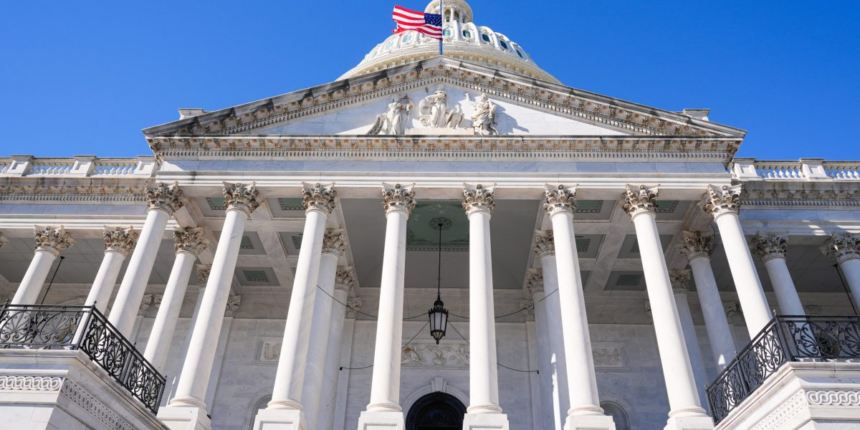As Saturday’s session got underway, it was uncertain whether Republicans and Democrats could make any headway toward reopening the government and breaking a partisan impasse that has now lasted 39 days.
Senate Majority Leader John Thune, R-S.D., said Trump’s proposal would not be part of a solution to ending the shutdown, but added “it is a discussion that the president and all of us want to have.” Thune said he planned to keep the Senate in session until the shutdown has ended and that “ideally, it would be great to set it up so we could vote today.”
Senate Republican leaders have signaled an openness to an emerging proposal from a small group of moderate Democrats to end the shutdown in exchange for a later vote on the “Obamacare” subsidies.
Shaheen and others, negotiating among themselves and with some rank-and-file Republicans, have been discussing bills that would pay for parts of government — food aid, veterans programs and the legislative branch, among other things — and extend funding for everything else until December or January. The agreement would only come with the promise of a future health care vote, rather than a guarantee of extended subsidies.
It was unclear whether enough Democrats would support such a plan. Even with a deal, Trump appears unlikely to support an extension of the health benefits. House Speaker Mike Johnson, R-La., also said this week that he would not commit to a health vote.
Republican leaders only need five additional votes to fund the government, and the group involved in the talks has ranged from 10 to 12 Democratic senators.
Some Republicans have said they are open to extending the COVID-19-era tax credits as premiums could skyrocket for millions of people, but they want new limits on who can receive the subsidies. They lined up Saturday to take to the Senate floor and argue that subsidies for the plans should be routed through individuals.
“We’re going to replace this broken system with something that is actually better for the consumer,” said Sen. Lindsey Graham, R-S.C.
Trump wants Republicans to end the shutdown quickly and scrap the filibuster, which requires 60 Senate votes for most legislation, so they can bypass Democrats altogether. Vice President JD Vance, a former Ohio senator, endorsed the idea in an online post Saturday, saying Republicans who want to keep the filibuster are “wrong.”
The package would replace the House-passed legislation that the Democrats have rejected 14 times since the shutdown began Oct. 1. The current bill would only extend government funding until Nov. 21, though senators indicated their version would likely go through January.
A test vote on new legislation could come in the next few days if Thune decides to move forward.
Schumer on Saturday persisted in arguing that Republicans should accept a one-year extension of the subsidies before negotiating the future of the tax credits.
“Doing nothing is derelict because people will go bankrupt, people will lose insurance, people will get sicker,” Schumer said in a floor speech. “That’s what will happen if this Congress fails to act.”









